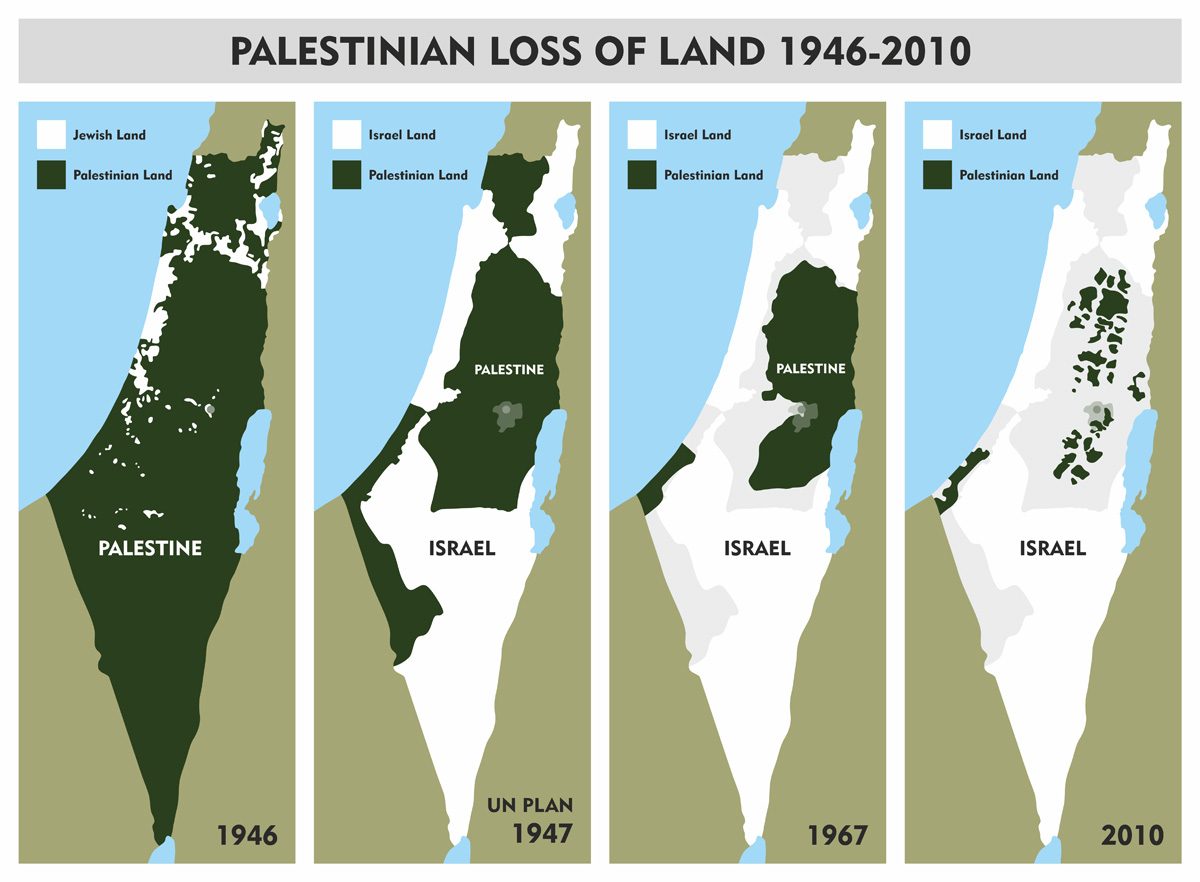Here are my thoughts on the matter. Here are my insights.
The most misleading aspect of Israel/Palestine is the notion of the 1967 border. The assumption is that the 1967 border is the beginning and the end of all conflict. The truth is that the conflict is much deeper. The Palestinians do not want only 1967 borders. They do not want the West Bank and Gaza. They want the entirety of Israel, including Tel Aviv. The reason that the peace process has not worked out is because fundamentally, the Palestinians are unwilling to let go of the "right of return" for their refugees. The refugees, who currently number 5 million. Which itself is a misleading number. The number expelled is 700,000, roughly. Of those original 700,000, 30,000 to 50,000 remain alive today. Given that 1948 is 66 years away from 2014, a significant number of the surviving first-generation refugees were under 5 years of age in 1948. So there are 4,950,000 descendants of Palestinian refugees, 2nd, 3rd, 4th generation refugees, who want to "return" to Israel. Despite the fact that they have never set foot in Israel itself.
The reason that the Palestinians refuse to let this go is because they believe that the 1948 UN Partition plan was unfair. They believe that they were right to go to war.
Here is a typical perspective of the Palestinians.
In short, in 1947, the Jews numbered about 608,000. The Palestinians numbered 1,293,000. The Jews received 55% of the land, with 408,000 Arabs in the borders. The Palestinians received 45% of the land with no Jews within their borders. So you have 31% of the people receiving 55% of the land.
For starters, 60% of the Jewish partition was desert.
Take that 60% off the table, and you have roughly 30% vs 45%.
Secondly, Jewish immigration was inevitable. In the wake of the Holocaust, the world powers had no stomach to prevent Jews from moving wherever they wanted. In 1948, many wanted to move to Israel. A Jewish state would inevitably want to absorb all of them. A state can control its own borders. To do otherwise would mean no state, and in the wake of the Holocaust, a state was necessary and Palestine was the only place it could be.
By 1951, 675,000 Jews had moved from across the world to Israel. Now, while that number is artificially boosted by Jews living in Arab countries who, in the wake of the 1948 war and hostility towards Jews in general in Arab states, fled to Israel, it is likely that even without the war the numbers moving to Israel would still be significant. In any event, about 360,000 European Jews moved to Israel by 1951.
If you add 675,000 to 608,000, what you get is a Jewish population that is roughly parity to the Arab population. Of which, if the 1948 UN plan had survived, would also share their state with 408,000 Arabs. And 60% of that is desert.The remaining 800,000 or so Arabs would live on 45% of the land. This is actually quite generous, all things considered. The Arabs would in fact have twice as much land per person in their state. This is taking into account that 60% of Israel's 55% of the land is desert and it is not taking into account the property owned by Arab citizens of Israel.
The alternative to the 1948 plan would be to give the Arab majority in Palestine the right to block all Jewish immigration (which they clearly wanted to do). It would have meant no Jewish state, or one that was more an autonomous region than a true state. In the wake of the Holocaust, a state was going to happen. Even ignoring the Holocaust, the 608,000 Jews in Palestine had a right to self-determination.
If the 1948 UN Partition plan is fair, then that changes the Palestinian national narrative. The cornerstone is that it was completely unfair that a minority be awarded so much land. The resulting war is thus one of resistance against an unfair partition. But if it were a fair partition, in fact if it were a more than fair partition, then the 1948 war isn't resistance anymore. It is rejection of a fair deal.
Israel eventually encompassed 80% of Palestine with the conclusion of the 1948 war. 711,000 Arabs became refugees. The remaining state of Israel contained 156,000 Arabs and roughly 700,000 Jews, who would then be augmented by another 700,000 immigrants.


No comments:
Post a Comment